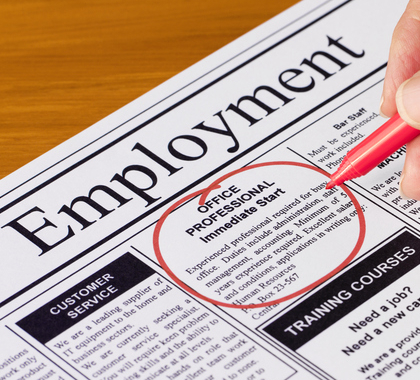The Trump administration is proposing a regulatory rule that would expand access to apprenticeships by allowing private enterprises, colleges, and other nongovernmental entities to set standards for training programs.
Currently, U.S. Department of Labor (DOL) regulations under the National Apprenticeship Act of 1937 require these programs to be approved by DOL or state-level agencies.
The change in regulations, published on June 25, would establish “Standards Recognition Entities”—nongovernmental standard-setting organizations that would “recognize Industry-Recognized Apprenticeship Programs.” The period for public comments on the changes was scheduled to end August 26, and a final rule could be enacted this fall.
Underutilized Option
Apprenticeships allow individuals to receive training in particular skills and for specific vocational or professional careers while earning money on the job. The credentials the trainees eventually receive allow them to work in that field by meeting industry or state occupational licensing requirements.
DOL figures show only 585,000 U.S. workers were in registered apprenticeship programs in 2018, out of a total national workforce of 128.6 million. Although the number of apprentices has been rising in recent years, this figure represents only 0.45 percent of the workforce.
The largest number of apprentices is in construction trades, where labor unions largely oversee training. The Trump administration argues dozens of other occupations are ripe for apprenticeships.
“Our economy has 7.4 million open jobs, and for 14 months in a row it has had more job openings than job seekers,” Ivanka Trump, the president’s daughter and adviser, and Labor Secretary Alexander Acosta stated in a June 25, 2019 op-ed in the Miami Herald. Currently, there are some 1.6 million more job openings than there are unemployed Americans. Even during the recent recession, some five million positions went unfilled because employers could not find skilled workers for them.
Task Force Recommendation
The administration is treating labor, education, and economic issues not in separate agency silos but as integrated issues demanding a government-wide approach to regulatory reform. The proposed DOL rule changes are based on recommendations of a Task Force on Apprenticeship Expansion appointed by President Donald Trump, which included business, labor, and education representatives and administration officials, in a report published on May 10, 2018.
“The American higher education system is churning out a pool of in-debt job seekers who are not equipped to meet the skills needs of many employers in the modern American economy,” the report observed.
The proposed DOL rule changes also cite a November 2017 Harvard Business School study, Room to Grow: Identifying New Frontiers for Apprenticeships, by Joseph B. Fuller and Matthew Sigelman.
“Parents and young people aspiring to enter the workforce need to overcome the widespread penchant for pursuing a four-year degree, instilled by the constant refrain of ‘college for all’ espoused by political leaders and the media,” Fuller and Sigelman write.
‘Swiss Model’
A little over 40 percent of American high school students go on to some form of higher education, which can include a two-year college. About one-third of U.S. high school students receive four-year degrees. Few enter apprenticeships.
This is in sharp contrast with the European experience. In Switzerland, for example, 70 percent of young people go through apprenticeship programs, and 40 percent of Swiss companies offer apprenticeship opportunities, Uschi Backes-Gellner, professor for business economics at the University of Zurich stated in a December 17, 2018 presentation at the American Enterprise Institute.
Switzerland has apprenticeships in 230 occupations. Apprentices earn money from the enterprises that employ them, can combine apprenticeship work with classroom training, and can go on to higher education if it serves their careers.
Colorado’s Model Program
The Swiss model inspired an innovative apprenticeship program initiated in Colorado in 2016. CareerWise Colorado is a private-public partnership that works to match businesses seeking trained workers with high school students looking for productive career opportunities, says the program’s founder and CEO, Noel Ginsburg.
“The program works in conjunction with 17 school districts and over 100 business partners,” Ginsburg said. “We just launched our third cohort and have enrolled more than 400 students.
“Students accepted as apprentices—students are hired by businesses in a competitive process, just like any other employee—split their time between meaningful on-the-job training, for which they are paid, and classroom work,” Ginsburg said.
Apprenticeships under the Colorado program can require several years to complete, Ginsburg says.
“Most apprenticeships last three years,” Ginsburg said. “Students can earn a high school degree, an industry-recognized professional certification, and the option to earn about a semester’s worth of debt-free college credit that they can apply to a degree if it serves their career needs.”
New Career Pathways
CareerWise Colorado focuses on career pathways not typically associated with apprenticeship, Ginsburg says.
These include “business operations, health care, information technology, financial services and advanced manufacturing,” Ginsberg said. “And we recently added apprenticeships in teaching.”
“This is a win-win situation all around.” Ginsburg said. “Apprentices gain career skills, income, and more options after high school, and businesses gain experienced workers. Society, overall, is better off.”
In 2019, CareerWise set up programs in New York State, which has 90 apprentices so far in its initial cohort, and in Elkhart County, Indiana, where it is currently recruiting its first cohort.
“Since January 2017, more than 500,000 people have entered apprenticeship programs registered with the Department of Labor or its state counterparts,” Ivanka Trump’s op-ed states. “The average starting salary for individuals who have completed apprenticeships is over $70,000.”
Apprenticeship programs “offer a pathway to a family-sustaining wages and fulfilling careers,” the op-ed states.
Edward Hudgins ([email protected]) is research director of The Heartland Institute.
Internet Info:
Task Force on Apprenticeship Expansion, Final Report to the President of the United States, U.S. Department of Labor, May 10, 2018: https://heartland.org/publications-resources/publications/task-force-on-apprenticeship-expansion
Joseph B. Fuller and Matthew Sigelman, Room to Grow: Identifying New Frontiers for Apprenticeships, report, Harvard Business School, November 30, 2017: https://heartland.org/publications-resources/publications/report-room-to-grow-identifying-new-frontiers-for-apprenticeships





